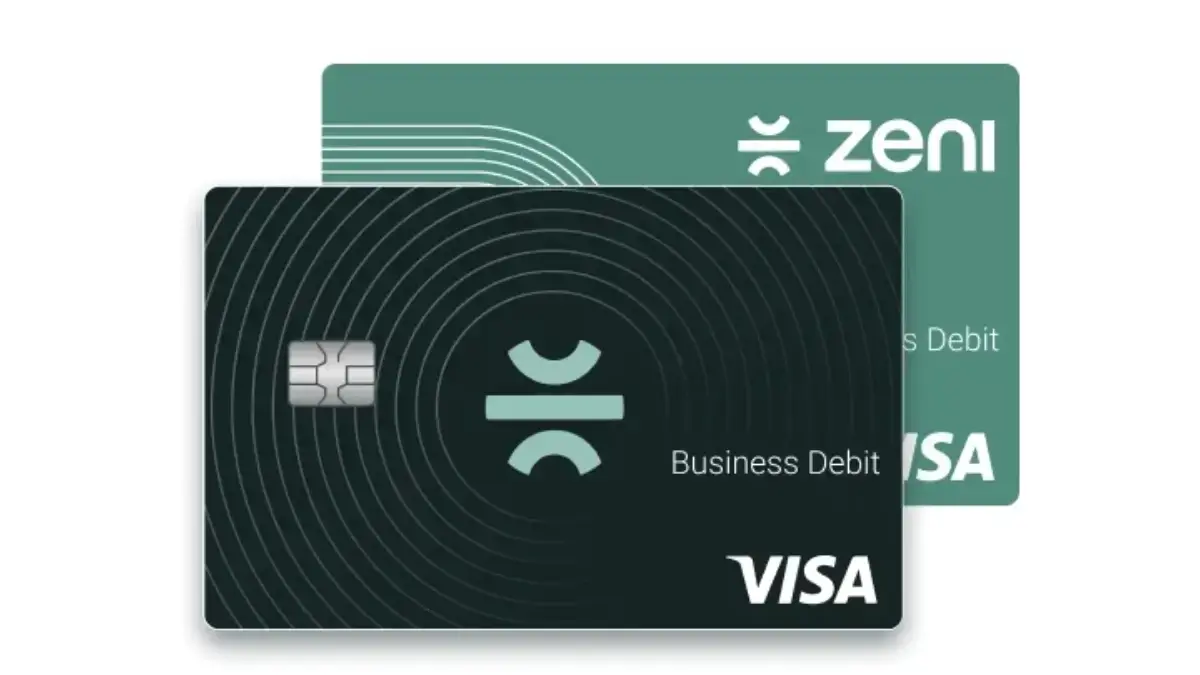
Kudos has partnered with CardRatings and Red Ventures for our coverage of credit card products. Kudos, CardRatings, and Red Ventures may receive a commission from card issuers. Kudos may receive commission from card issuers. Some of the card offers that appear on Kudos are from advertisers and may impact how and where card products appear on the site. Kudos tries to include as many card companies and offers as we are aware of, including offers from issuers that don't pay us, but we may not cover all card companies or all available card offers. You don't have to use our links, but we're grateful when you do!
How Many Credit Cards Should You Have in 2025?
July 1, 2025


Is it better to have one single credit card or a wallet full of them? In 2025, consumers have more credit card options than ever – from cash back cards to travel rewards, store cards, and more. It’s easy to find yourself with multiple open accounts. But how many credit cards should you have? The answer isn’t one-size-fits-all. The right number depends on your spending habits, organizational skills, and financial goals.
In this article, we’ll explore the factors to consider when deciding how many cards to carry, the advantages and disadvantages of having multiple credit cards, and best practices to manage several cards without hurting your credit. Whether you have one card or ten, using them wisely (with a little help from tools like Kudos for tracking and optimization) is what truly matters.
The Average Number of Credit Cards in 2025
First, it helps to know what others are doing. In 2025, the average American has about 3 to 4 credit cards. This number comes from a combination of general-purpose cards (Visa, Mastercard, Amex, Discover) and retail/store credit cards. Some people have far more, and many have fewer or none at all.
There’s no magic number that boosts your credit score or guarantees financial success. However, knowing the average gives context – if you have a dozen cards, you’re well above average and might need a very good system to keep track of them; if you have only one, you’re far below average and might be missing out on some benefits.
Credit scoring models don’t explicitly reward you for having a certain number of cards. Instead, they look at how you manage whatever credit you have. It’s entirely possible to have an excellent credit score with just one or two cards, or conversely to have excellent credit with 10+ cards, as long as you manage them properly. The key is not the number of cards, but how you use them.
Benefits of Having Multiple Credit Cards
Why do people end up with multiple cards? There are several potential benefits:
- Maximizing Rewards: Different cards offer various reward structures. For instance, one card might give 5% cash back on groceries, another 3% on travel, and another a flat 2% on everything. By using multiple cards, you can optimize rewards for each purchase category. This is often called the “credit card rewards strategy” – using the best card for each situation. Over the course of a year, this can lead to significantly more cash back or points.
- Higher Total Credit Limit: Each card comes with its own credit limit. More cards usually mean a higher total available credit. A higher total limit, combined with modest spending, can lower your overall credit utilization ratio, which is good for your credit score.
- Backup and Flexibility: Multiple cards provide a safety net. If one card is lost, stolen, or frozen due to a fraud alert, you have others to fall back on for your purchases. Also, some cards may not be universally accepted (for example, Discover or Amex might not be taken at certain merchants), so having a Visa or Mastercard as backup ensures you’re not stuck.
- Different Perks: One card might have great travel insurance and airport lounge access, another might have purchase protection and extended warranty, and a third might be the one tied to your favorite airline or hotel for elite benefits. By holding multiple cards, you can enjoy a wider range of benefits.
- Building Credit: Each account you manage well (pay on time, keep balances low) adds positive history to your credit report. Having multiple cards that are all in good standing can paint a picture of a responsible borrower who can handle various credit lines.
Risks and Downsides of Too Many Cards
While there are benefits, having a lot of credit cards can have potential downsides:
- Managing Payments: With multiple due dates and statements, there’s a higher chance of missing a payment if you’re not extremely organized. Even one late payment can hurt your credit score and result in fees. Juggling many cards requires diligent tracking.
- Overspending: More credit available can lead to more temptation to spend. If each card has a few thousand dollars of credit, you might feel flush with purchasing power – which can be dangerous if you don’t keep a budget. People sometimes mentally compartmentalize cards (e.g., “this card is for fun spending”), leading to overspending across all of them combined.
- Annual Fees: Some premium credit cards have annual fees. If you hold many cards, those fees can add up if the cards aren’t providing enough value to justify the cost. You might accidentally keep a card past its first free year and get hit with a fee you forgot about.
- Impact on Credit Score (Temporarily): Each time you apply for a new credit card, there’s a hard inquiry on your credit report, which can slightly ding your score in the short term. Opening a new account also lowers your average account age. One or two new cards isn’t a big deal, but opening many in a short time frame could have a noticeable (but usually temporary) effect.
- Complexity: Simply put, having lots of accounts can complicate your financial life. It’s one more thing to worry about in terms of fraud monitoring, updating personal info if you move, etc.
It’s important to gauge your own comfort level. Some people thrive on managing 10+ cards meticulously, extracting every reward possible. Others find more than 2 or 3 to be overwhelming.
Finding Your Optimal Number of Cards
There is no “correct” number of credit cards for everyone. Your optimal number depends on:
- Your Financial Discipline: If you’re highly organized and never miss payments, you can handle more cards. If you know you tend to forget bills or overspend, keep the number small.
- Your Spending Habits: If your spending is mostly in one or two categories (say, just dining and groceries), you might only need a couple of cards that reward those. If you spend broadly across travel, gas, groceries, online shopping, etc., you might want different cards for each category.
- Your Financial Goals: Are you trying to maximize travel rewards for free vacations? Then multiple travel cards and maybe some transferable points cards could be useful. If your goal is simply to build credit, you might only need one or two well-managed cards.
- Your Income and Creditworthiness: Banks typically won’t approve unlimited cards. If you have a modest income, there’s a natural cap on how much total credit they’ll extend across all your accounts. Also, if you’re new to credit, starting with one card and gradually adding is better than applying for many at once.
For many people, a sweet spot is around 2 to 5 credit cards. This range allows you to enjoy a variety of rewards and have backup cards, without being too hard to manage. For instance, you might have one everyday cash back card, one travel rewards card, and perhaps a store card for a place you frequently shop.
Tips for Managing Multiple Credit Cards Responsibly
No matter how many cards you decide to have, these tips will help you manage them:
- Pay On Time, Every Time: This is non-negotiable. Consider automatic payments or calendar reminders. A tool like Kudos can send you alerts for upcoming due dates, which is invaluable if you have many accounts.
- Keep Balances Low: Don’t interpret more cards as permission to rack up debt. Ideally, treat your credit cards like debit cards – don’t spend money you can’t pay off fairly quickly. This keeps utilization low and avoids interest.
- Review Statements Regularly: With multiple cards, it’s easy to miss erroneous charges or fraud. Check each statement or use an aggregator app to scan transactions. Kudos, for example, allows you to monitor transactions on all linked cards in one place, so unusual activity stands out immediately.
- Organize Due Dates: If possible, adjust your due dates (many issuers let you choose) so they’re spread out or all on one convenient day. Whatever works so you don’t overlook one. Some prefer spreading them (e.g., some due on the 1st, some on the 15th) to break up payments; others like one big payment day to remember.
- Reevaluate Annually: Once a year, assess your cards. Are you using all of them? Are the annual fees worth it? Did your spending pattern change, making one card less useful? This helps you decide if it’s time to close or downgrade any card or apply for a new one that better fits your current needs.
- Leverage Card Benefits: Having multiple cards means you might forget benefits each card offers (like free checked bags on an airline card, or cell phone insurance on a credit card if you pay your phone bill with it). Keep a list of perks or again, use Kudos which can show you a summary of each card’s perks. Make those cards work for you!
Remember, quality over quantity is a good mantra. It’s better to have a couple of cards you manage perfectly than a wallet full of cards you struggle to keep up with. Lenders and credit bureaus favor responsible usage, not sheer numbers.
How Many Credit Cards Should I Have FAQ
Is having too many credit cards bad for your credit?
Not necessarily. Having multiple credit cards is not inherently bad for your credit, as long as you manage them responsibly. In fact, having more cards can help your credit by increasing your total available credit (which can lower your credit utilization ratio) and diversifying your credit lines. The danger lies in mismanagement: if “too many” cards leads to missed payments or high balances, then it will hurt your credit.
How many credit cards do most people have?
On average, most Americans have around 3 to 4 credit cards. This average can include a mix of major credit cards and store-branded cards. Of course, there are people who have zero credit cards and others who have a dozen or more, so it varies widely. The key insight is that having a few cards is quite normal. If you only have one card, you’re below the national average, and if you have, say, eight or more, you’re in a smaller minority of consumers. Regardless of where you stand relative to the average, focus on whether the number of cards you hold is working for you and your financial situation.
How often should I apply for new credit cards?
It’s generally best to space out credit card applications rather than applying for many in a short period. A common recommendation is to wait about 3 to 6 months between credit card applications (at minimum). This spacing helps in a few ways: it avoids too many hard inquiries hitting your credit report at once, and it gives any new accounts some time to age before adding another one. If you’re aiming for a specific sign-up bonus or offer, plan accordingly.

Supercharge Your Credit Cards
Experience smarter spending with Kudos and unlock more from your credit cards. Earn $20.00 when you sign up for Kudos with "GET20" and make an eligible Kudos Boost purchase.
Editorial Disclosure: Opinions expressed here are those of Kudos alone, not those of any bank, credit card issuer, hotel, airline, or other entity. This content has not been reviewed, approved or otherwise endorsed by any of the entities included within the post.





























.webp)
.webp)
.webp)
%20(1).webp)
.webp)
.webp)


.webp)